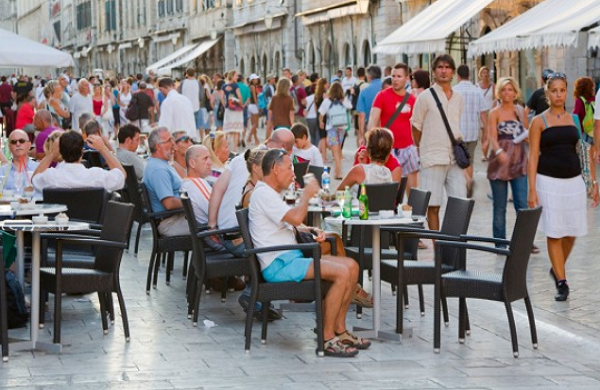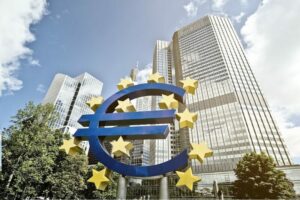Net costs for the state with holiday vouchers for public sector employees and the VAT cut for tourism will amount to RON 1,878 million in 2019 (about EUR 395 million). The Ministry of Tourism has an investment budget of only RON 229 million, according to official data.
However, Romania’s tourist attractiveness cannot increase by stimulating domestic demand, and the result is seen in Romania’s foreign balance of payments:
The infusion of public cash is not seen in the attractiveness of the Romanian tourist offer since the current account deficit of this field amounted to EUR 1,035 million, only in the first 7 months of the year (+ 36% compared to the same period in 2018), according to BNR data.
This means that the voucher policy is a hidden subsidy of the sector, which adds to the tax incentives: neither of the two measures that involve public costs seems to have increased the quality of tourist services.
During this time, the state borrows at record-high interest rates to finance consumption.
Cocktail with public money – vouchers and VAT
The Government kept its commitment to maintaining the cash infusion almost unchanged in 2019 through holiday vouchers granted to over 1.2 million employees from the public sector: RON 1.73 billion, compared to RON 1.74 billion last year.
At this level, net cash inflows in tourism through the holiday vouchers amount to over RON 1,647 million and the state recovers from the tourist units RON 82 million through VAT, which is anyway much lower than the standard rate.
*
- State’s cash inflows for stimulating domestic demand in tourism
- 2019 (million RON) 2018 (million RON) change 2019/2018
- Nest costs with holiday vouchers
- Unearned VAT difference
- Total net cash
*
On the other hand, the VAT for accommodation and meals (without drinks) in tourism decreased to 5% in 2019, from 9%, so that net cash volume which increased the domestic demand for tourist services increased by 3% compared to last year.
By reducing the VAT from the standard quota of 19%, the state gives up over RON 230 million in 2019, by over 44% more than in 2018.
Thus, the total net cash benefiting companies from tourism increases by 6.9% in 2019 compared to 2018, up to almost RON 1.88 billion.
With what result:
How deficit increases in tourism: foreigners who come are as few as before; Romanians who leave are as many as before
The increase in the current account deficit in tourism (+ 36%, up to more than one billion euros) is explained by Romania’s tourist attraction, which is still far from increasing the same as state incentives, as the National Institute of Statistics data show (INS).
The number of foreigners visiting Romania for leisure (1.05 million) will be more than 12% lower in 2019 compared to last year if we admit that in the second half of the year they will be as numerous as in the first six months.
Money foreigners spend in Romania will be reduced by almost 4.7%, to just over RON 2.53 billion, but more than half of them do not come for tourist purposes in Romania but with their job or for business.
*
- Number of tourists and money they spend in Romania
- Number of tourists coming for personal reasons (million)
- How much they spend in Romania (million RON)
*
It is worth noting that the share of foreigners coming to Romania for other than professional reasons stagnates: 43.9% in the first half of 2019, compared to 43.3% in 2018.
Statistics show even worse after mentioning that only 66.8% of foreigners who come to Romania „for personal purposes”, do that exclusively to spend their holidays.
The INS data for 2019 include here the visits to relatives and friends (9.2%), but especially visits for „shopping, cultural and sporting events, medical treatment, religion, transit and other activities”.
On the other hand, the increase in incomes rather stimulated Romanians’ travels abroad.
The number of those who preferred foreign destinations increased by 39% in the 1st half of 2019, compared to H1 / 2018, up to more than 1.5 million, but also their share in the total (domestic + foreign tourism) increased to 30.5%, from 29.3%.












